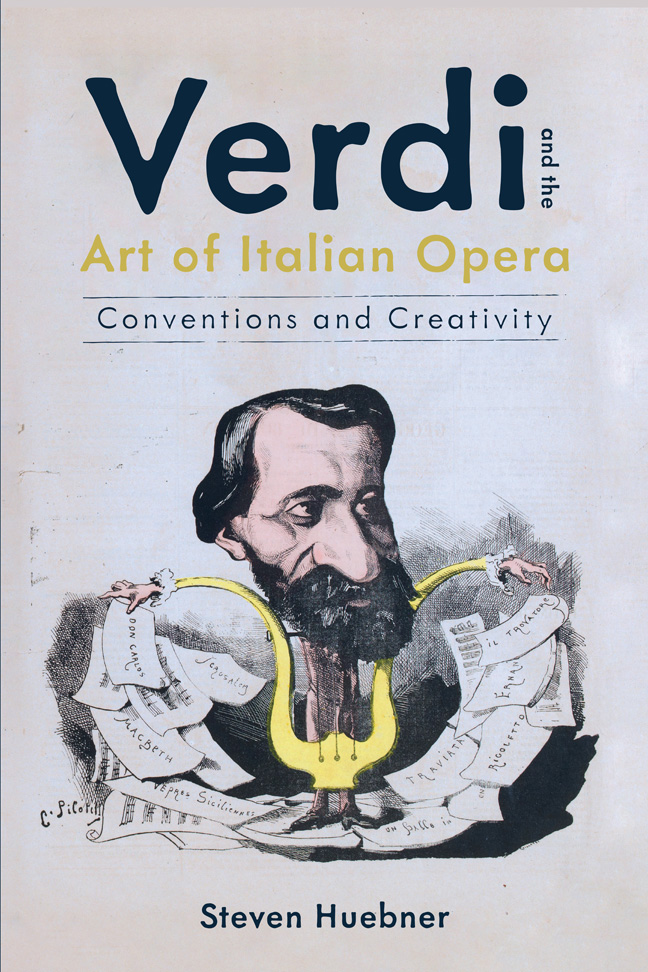2 - Textures
Published online by Cambridge University Press: 22 February 2024
Summary
Although Abramo Basevi did not attempt a systematic study of Verdi's style in his important Studio sulle opera di Giuseppe Verdi (1859)—the book, rather, offers a blow-by-blow survey of the operas before Simon Boccanegra—he occasionally uses certain terms that have been folded into the analytical vocabulary in the last half century, notably in the work of Harold Powers (as we will explore in chapter 4). One is the expression solita forma (the usual form) to refer to the large-scale organization of operatic numbers, little developed by Basevi himself but much discussed in the modern musicological literature. Other terms also relate to architecture, such as stretta or pezzo concertato, and have become common coin. But before we look at these, it is important to consider the musical elements of pezzi: the textures employed and (in chapter 3) the organization of musical phrases at a local level.
Typology
The term related to texture that surfaces most frequently in Basevi's book (and that he discusses more than solita forma) is parlante. He defines it initially in his chapter on I Lombardi, describing it as a passage where “the motivo is in the instrumental part rather than in the voice” (Basevi understands motivo here not as a short musical fragment but as a synonym of phrase or theme). He continues by proposing a typology of different kinds of parlanti, to be considered later in this chapter. For now, we should note that in his discussion of Simon Boccanegra where he criticizes the putatively mediocre quality of the recitatives at the beginning of this opera, Basevi situates parlante in the context of other textures: recitativo on the one hand and aria on the other hand. He starts this analysis, one that has an explicitly anti- Wagnerian agenda, by retracing the history of recitative since the work of Jacopo Peri at the beginning of the seventeenth century to establish the separation of recitative into two types: semplice and obbligato. Traditionally, the former designates a realization with basso continuo or solo keyboard. After the late works of Rossini, Basevi implies that recitativo semplice includes participation of the orchestra but in a minimal way, whereas obbligato signifies a more important orchestral role.
- Type
- Chapter
- Information
- Verdi and the Art of Italian OperaConventions and Creativity, pp. 70 - 136Publisher: Boydell & BrewerPrint publication year: 2023

